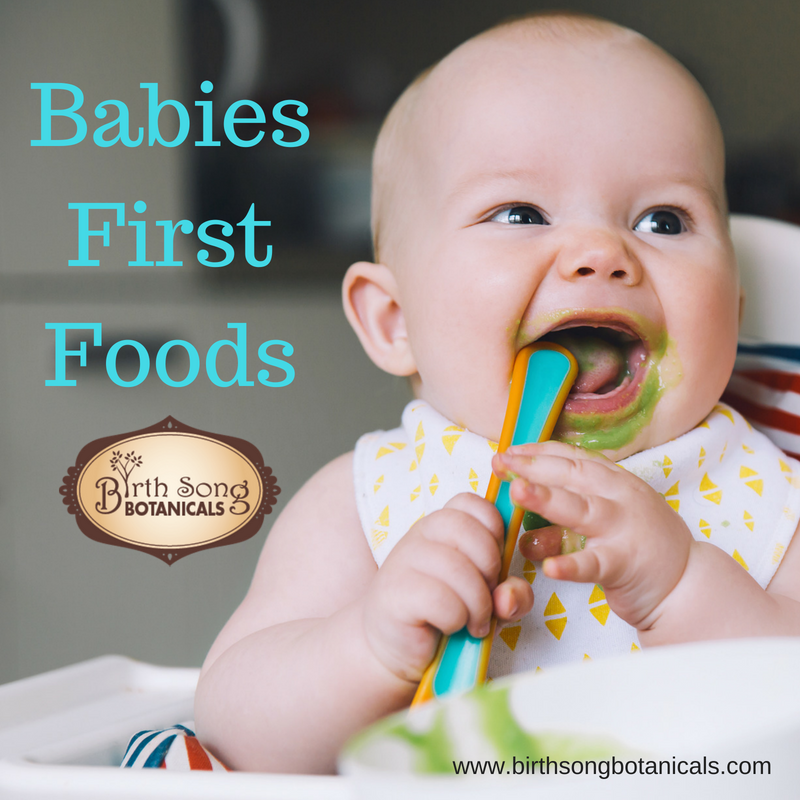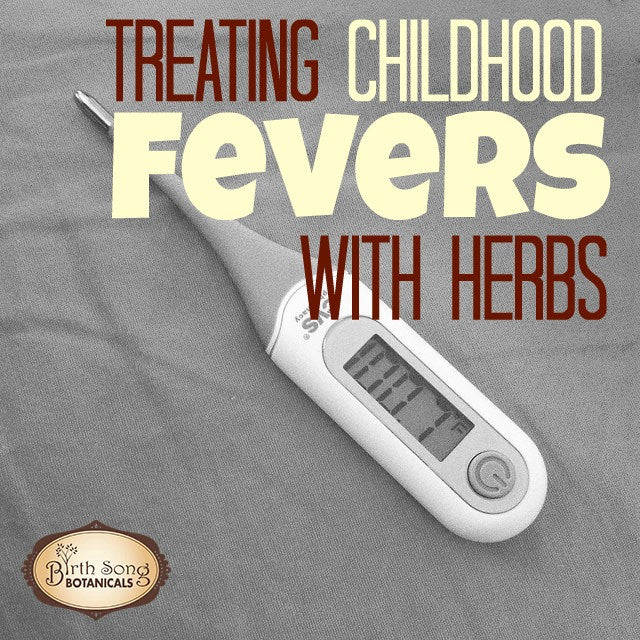Baby's First Foods

You may have heard your baby will be ready for solid food when she is six months old. You may have also heard that a good first solid food is a bland single ingredient food like rice cereal. While these general guidelines are not necessarily harmful, they are not true for all babies, and rice cereal generally isn’t the best thing to give your baby as a first solid. Each baby is different and will reach milestones at a different rate. Although they will reach them within expected ranges - such as from 3-6 months, these variation are to be expected. There are signs you can look for that will indicate when your baby is ready to start solids. And you can most likely forgo the prepackaged baby foods altogether if you want to.
Cues Your Baby is Ready
Your baby will be ready to try out solid foods when she can hold her head up by herself and can sit up unassisted. She will also lose the tongue thrust reflex. If you put a small amount of a soft food into a babies mouth (such as a bit of banana or avocado) before they have lost this reflex, they will thrust their tongue out and and the food will just get pushed out. However, as they get older, they will lose this reflex and be able to properly swallow solid foods.
You will also notice that your baby will begin to show more and more interest in food. If your baby sits with you while you are eating, she will begin to watch you eat. At some point, she will begin to reach out and try to grab the food and will get excited when there is food on the table. If you are holding her in your lap, she may try to reach up and grab the food out of your fingers!
There Is No Certain Date
Most of us know that six months is around when your baby will be ready for solid foods. However, some babies will be ready before then, and some won’t be ready until after. Look for the developmental clues mentioned above and follow your baby’s lead. Some babies will be ready to dive in and begin eating with gusto at 5 months, but some baby’s really aren’t that interested until after they are a year old. Especially if you are breastfeeding on demand, you don’t need to worry too much about them getting the nutrition they need. They will still be getting a lot of nutrition from your breast milk.
Why Not Rice Cereal?
Although rice cereal is often said to be a good first food for babies, it actually is a highly processed food that does not contain the nutrients that babies need. Your baby is born with a store of iron that lasts her through the first 6 months or so. When you do begin to give her solid foods, it’s a good idea to focus on foods that are high in iron. Although rice cereal is fortified with iron, it is not the kind of iron that is easily digestible by your baby, so she doesn’t actually benefit that much from it. Instead you can focus on other foods that are high in iron such as: winter squashes (pumpkin, butternut), sweet potato, beef and dark meat poultry, mushrooms and sea vegetables (dulse and arame), and dark greens (spinach, chard, beet, kale). All of these foods can be cooked to a soft consistency and mashed with a little breast milk or formula.
These foods don’t have to be the only foods your baby tries. Vary it up with other simple to mash things - bananas, avocados, plain yogurt. There really is no reason why your baby needs “special” food of her own. She can often eat a modified version of what the family is eating, if you can mash it up enough. If you can’t, grab an avocado, a banana, or cook a little ground beef and mash with some breast milk or formula.
What About Baby Food?
There is a whole section of the grocery store devoted to the idea that your baby needs to have his own special food, and that food needs to be prepacked. For some families this pre-packaged baby food is a huge time saver and is worth the extra money for the convenience. If you will be purchasing pre-made baby foods, look at the ingredients carefully, picking foods that have the fewest processed ingredients as possible.
For some families, pre-made baby foods are an occasional thing that get used mainly when they are out and away from the house, or traveling.
Using pre-made baby foods is fine! If it makes for an easier and less stressful meal time for your family, allowing you all to focus on each other, then do what works best for you. Make the best decision for you and your family. Remember that you are making nutritional choices for your baby and choose the healthiest options you can find.
Let your Baby Lead the Way
Although your baby may be ready at 6 months, she may not be ready yet. Don’t be overly concerned about it if she isn’t. If you are worried about your babies weight gain or that she isn’t eating solid foods yet, talk to your doctor. More than likely, your baby will eat when she is ready to and then she will want to try everything in sight!






